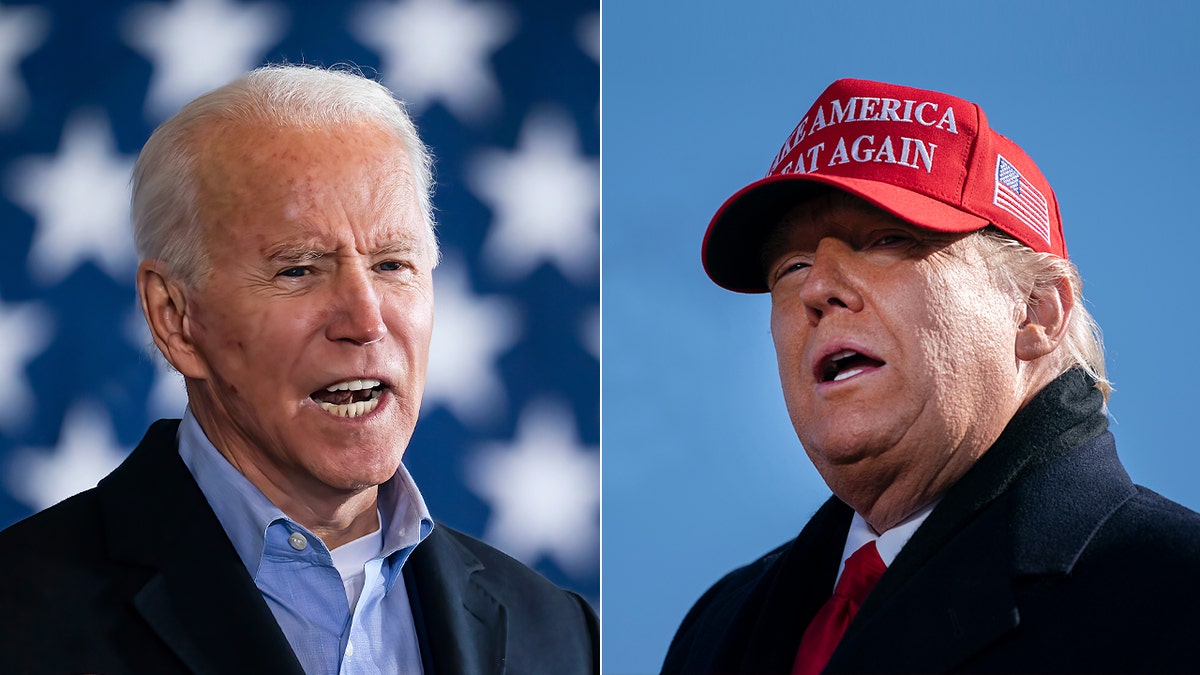
We live in extremely polarizing times.
Can anyone really dispute that?
The two major presidential candidates are calling each other a threat to democracy.
Donald Trump says Joe Biden is pulling the strings to have him jailed in the hush money case. Joe Biden says Donald Trump is a dictator in waiting.
Biden says Trump’s election would lead to a national ban on abortion. Trump says Biden’s election would mean Democrats would keep aborting babies through the ninth month and even after birth.
Trump says Biden has opened the borders in ways that will lead to a crime surge across the country. Biden says Trump torpedoed a tough border security bill because he’d rather have the issue than a solution.
Most Republicans believe Trump that the 2020 election was stolen. Most Democrats believe that is a big lie.
Trump says the Jan. 6 defendants are hostages who are being held illegally. Biden says they were rightfully convicted for attacking police officers and trying to overturn the election.
There are exaggerations, distortions and outright falsehoods in these and many other statements. But they are believed or disbelieved based largely on pure partisanship. And nasty personal attacks have become so routine in this social media age that they are almost the price of admission.
But what if these are just a limited set of players – journalists, pundits, operatives, influencers and trolls – who are poisoning the atmosphere?
Jim VandeHei and Mike Allen, co-founders of Axios, explore that question in a thought-provoking piece:
‘What if we’ve been deceived into thinking we’re more divided, more dysfunctional and more defeated than we actually are?’
They’ve come up with a phrase –’reality distortion bubble’ – to describe the world we live in.
They don’t deny that ‘deep divisions’ exist. They say the loudest voices are amplified, which has been true going back to the earliest days of talk radio.
But when I think of ordinary people in my life – by which I mean those who are not political or media junkies, and live relatively normal lives – I’m reminded that they don’t walk around with their fists up and use Facebook mainly for family and pet updates.
This is particularly true when I escape the Beltway hothouse.
Here’s how Axios puts it:
‘No, most Christians aren’t white Christian nationalists who see Donald Trump as a God-like figure. Most are ignoring politics and wrestling with their faith.
‘No, most college professors aren’t trying to silence conservatives or turn kids into liberal activists. Most are teaching math, or physics, or biology.
‘No, most kids don’t hate Israel and run around chanting, ‘From the river to the sea.’ On most campuses, most of the time, students are doing what students have always done.
‘No, most Republicans don’t want to ban all abortions starting at conception. No, most Democrats don’t want to allow them until birth.
‘No, immigrants who are here illegally aren’t rushing to vote and commit crimes. Actual data show both rarely happen — even amid a genuine crisis at the border.
‘No, most people aren’t fighting on X. Turns out, the vast majority of Americans never tweet at all. [What??]
‘No, most people aren’t cheering insults on Fox News and MSNBC in the evening. Turns out, less than 2 percent of Americans are even watching.’
Anticipating complaints that they are ‘naive,’ the authors concede that politics on the Hill, especially in the House with its miniscule majority, are dysfunctional. I’d say that dramatically understates the case.
Crucial aid to Israel and Ukraine has been stalled for months because of petty partisanship. Marjorie Taylor Greene is talking about toppling another speaker, Mike Johnson, six months after her ally Kevin McCarthy got the boot. This is sheer chaos.
VandeHei and Allen make the intriguing point that politics has infested everything, from football to beer to Target.
And, yes, there’s blame on both sides:
‘The acceptance of former President Trump’s language and tactics by so many Republicans can be partly explained by this reality distortion phenomenon. His base often feasts off edge-case outrages — wacky liberal professors saying wacky things, illegal immigrants committing brutal but isolated crimes, surges in shootings in specific cities…
Similar edge cases pulse through liberal channels and the word police. This helps explain how ‘LatinX’ went mainstream, then got dumped.’
Maybe people will grow sick of the perpetual polarization and rediscover that there’s more that binds us than separates us. But I don’t see it happening anytime soon.

